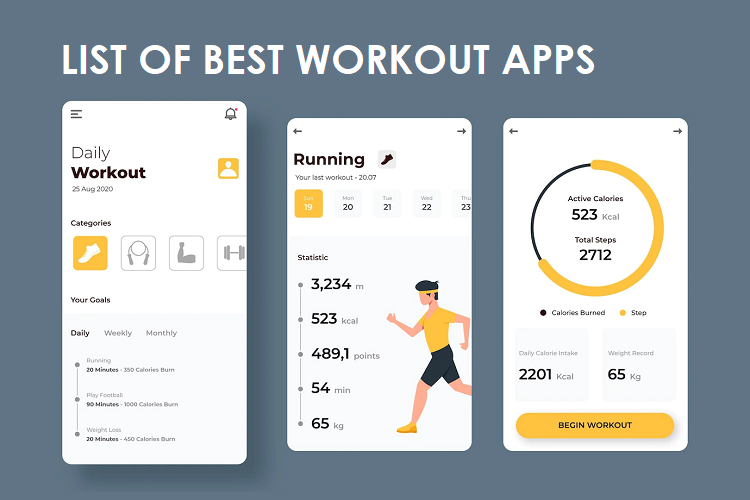The healthcare sector is changing with technology been a key determinant of trends in management of patients, efficiency, and effectiveness. One of those emerging technologies that, among others, is pushing for the change of the industry is blockchain. Blockchain, a system on which Bitcoin, the peer-to-peer digital currency was established, is perceived to bring radical changes in the traditional models of operation in the health industry, promote patient data protection, and subsequent improvement in quality-of-service delivery.
In this article, the author will explain different approaches of using blockchain technology in health care along with opportunities and threats that it bears as well as factors that can help in the implementation of this technology in this field.
What is Blockchain and How it Works?

In the most common sense, it is a chain of records that stores and processes transactions securely, transparently, and verifiable way. A collection of many nodes which hold a replica of the actual record and eliminate the chance for cheating.
In this case, the decentralized nature of blockchain makes it suitable solution for various sectors such as healthcare, where patient data may be vulnerable. Blockchain technology provides secure end-to-end data sharing among the healthcare providers, solves the problem of data interoperability, and increases the level of confidentiality for patients’ records.
Applications of Blockchain in Healthcare
Blockchain is the technology that has changed the way people and organizations interact with data. This makes it an efficient and secure medium of transaction without third parties need involved on the nature and is suitable for application in healthcare settings. Now let’s see how blockchain is being used in the field of health care.
1. Electronic Health Records (EHRs) Management
Blockchain can be implemented to create a technology system for storing and administering EHRs for distinct individuals. It will enable medical records on patients to be shared between practitioners without a middle man, improving the ways of making decisions, minimizing mistakes, and improving the quality of dispensing health care services.
2. Claims and Billing Management
The current health care claims and billing are usually based on fake claims that are cumbersome. Blockchain can help in the simplification of this process because it can streamline the transaction process and make it possible to easily check the credentials of a claimant using the technology by both the insurers and the providers of care.
3. Clinical Trials Management
Blockchain can help manage clinical trials by achieving a proper record as well as maintaining security and decentralization while also providing for trial status transparency. This would not only raise the efficiency of drug development but facilitate increasing the velocity of drug effects recognition by scientists.
4. Supply Chain Management
The healthcare supply chain comprises several channels involving manufacturers, distributors, wholesalers, and even pharmacies. This can be solved by the help of Blockchain, as Blockchain can bring accurate and trustworthy record systems and make sure that counterfeits are not incorporated into the chain.
5. Patient Data Privacy and Security
The healthcare industry is currently faced with a significant problem of how to ensure patients’ data security and confidentiality. Electronic health records are relevant in this regard as the use of Blockchain technology can provide for secure and encrypted Base a patient’s information while giving them control over the information.
6. Medical Research and Data Sharing
The concept of blockchain may be used to share medical research information securely in addition to encouraging collaborative work among researchers in an efficient manner. It might lead to discovering the knowledge of diseases, discovering a new treatment method, and increasing patients’ well-being in a whole manner.
Telemedicine: Blockchain can serve the purpose of telemedicine by providing security and privacy in sharing the patient information between the doctor and the patient. It will allow for service of health in remote areas and convenience to the patients.
Benefits of Blockchain in Healthcare
Healthcare systems across the globe have incorporated the use of technology creating a demand for effective means of managing data. Let’s dive into the particulars of how Blockchain is useful in healthcare.
1. Security and Privacy
The first and the most obvious advantage of the use of Blockchain in the healthcare industry is that it strengthens the area of security and confidentiality. Information in the sphere of healthcare service is among the most personal and sensitive in the age of the internet. As the world is plunged more into digital environment, more incidents of data loss, data breach and unauthorized access to PHR, it becomes paramount that such data is secured. Blockchain technology provides an open and distributed ledger system which has possibilities of providing unmodifiable system for storing the healthcare data. This secures all information so that only those who are given rights to see information can see it and therefore increases patient confidentiality and security.
2. Better Quality and Credibility of Data
The architecture of the blockchain allows for the creation of a permanent and completely transparent trail of all activities. The ability to handle the healthcare records makes it suitable to be used in this feature. In addition to this, with Blockchain, it will only be easy to record all the modifications that are done in relation to data, and thereby make it difficult for anyone to forge or manipulate the data in question. This consequently results in better accuracy and reliability of the information contained within patient health records – and subsequently, fewer, and fewer errors are made in patient treatment processes.
3. Data Auditing, Data Exchange, and Interoperability
In the case of healthcare, those players are very interconnected and include patients, physicians, healthcare institutions, insurers, and research organizations. In such a case, there is the need to ensure that data sharing is optimized to support operations. It is also worth stressing that, due to the blockchain constructiveness, data sharing across all stakeholders can be done safely and in an encrypted method. It also enhances interactions, both formally and informally as well as speedy decisions to bring desirable outcomes for patients.
4. Renewing Supply Chain Management
The ability of recording the movement of the stock from the manufacturer through the distributor to the patient can be done effectively through the adopted blockchain technology thus enhancing supply chain management in the health sector. With the use of the immutable ledger, the records of the supply history can be easily retrieved and validated hence denying the entry of fake drugs and increasing patient safety. In addition, through this technology, efficient ways of managing inventories and cutting down the expenses of the healthcare providers can be provided.
5. Reducing Healthcare Fraud
Healthcare fraud is a major menace around the world because it leads to great losses in the healthcare industry. Manual procedures used in combating fraud are usually slow, unadvised, and very much dependent on human beings. Blockchain technology can limit opportunities for healthcare fraud, due to the creation of a structure that fixes each transaction. This is possible because fraud activities can be monitored in real time to reduce the health sector’s costs and enhance the sectoral efficiency.
6. Taking Care of the Patient’s Mobility
Self-management is another benefit that the patients specifically those with chronic ailments can be experienced now due to Blockchain technology. The concept of blockchain makes attributions due to its decentralized nature that the patient’s health information can be safely stored and they can selectively share it with their health care provider. This is useful not only for growing patient privacy but also for increasing patient involvement and transportability as well.
7. Improving Clinical Trials and Research
It extends the possibility of blockchain technology in clinical trials and healthcare research and development. This way, all the information concerning clinical trials can be made more reliable and easily analyzed due to the creation of an additional level of transparency by generating an indisputable data layer that can be analyzed directly from researchers. This results in improved research efficiency and hence benefits of the overall health care sector.
8. Cost Reduction
There are lots of reasons on how Blockchain technology could dramatically lower the cost of medical care. Blockchain has the potential to assist the healthcare industry in improving its resource utilization hence increasing efficiency through management of data, improving on collaboration, and combating fraud. This leads to lowered operational costs and therefore improved care for the patients.
Challenges and Limitations
There are numerous weaknesses and limitations that need to be overcome for this technology to achieve its potential in the healthcare industry.
1. Scalability
A major weakness of blockchain technology of use in the provision of healthcare services is that it cannot handle large number of transactions., despite being safe and effective, have disadvantages related to scaling in areas with substantial amounts of data – such as health records. Time and space constraints can also form a bottleneck in the application of blockchain in the health care fields.
2. Interoperability
An issue of interfacing between different block chain systems is that the data exchange between different health care providers can be restricted. Such fragmentation can lead to reinvestment of resources, redundant input and output, and errors on the patients’ records. Since this is one of the major obstacles to the adoption of blockchain in the healthcare industry, a standardization of blockchain protocols and platforms will be crucial.
3. Regulatory Compliance
The aspect of healthcare is well governed, and patient information should be handled under the required privacy and security measures. While application of blockchain can improve data protection, there are discrepancies in the legal requirements concerning use of this technology in the framework of the healthcare industry. Legal uncertainty could become an issue in adopting blockchain in health care since the compliance is not well understood.
4. Integration with Existing Systems
This also includes the adopting of the new system into his existing IT system or merging the new with the current system. It could be a very lengthy affair in many large organizations and may entail the purchase of new computer systems and applications. Moreover, staff training and change management could be problematic, in case healthcare organizations, for which new technologies are implementing, demonstrate certain reluctance.
5. Cost
The health care industry could also be limited by the expenses required to put up and sustain a blockchain system. Although blockchain technology is known to be able to reduce costs in the future, the initial capital that must be invested in this technology may be unattainable for some organizations.
The Future of Blockchain in Healthcare
Blockchain in the future of health care looks bright because the use of blockchain may help to change transfer, storage, and management of health information. It has the following advantages of decentralization, increased privacy, and transparency while at the same time enhancing easy sharing of data. This can convert to the improvement of the quality-of-care services rendered to the patient.
Blockchain technology is especially important when speaking of electronic health record systems; the data is sensitive and needs to be protected. It also may enhance the accuracy of data checking, which decreases the possibility of frauds and mistakes. It could help make healthcare affordable and cut down on a lot of bureaucracy when dealing with patients and paperwork.
Also, blockchain can assist to pioneer or grow decentralized clinical trials and medical analysis, which are more suited. It described a research arrangement which the researchers can work together securely and anonymous and it must improve the pace for drug development and bring new treatments into the market faster.
Finally, we can say that the ability to create healthcare systems on blockchain basis allows for development of it. Right from guaranteeing effective and efficient management of data, security of data to offering better health care services and enhancing medical research.
Conclusion
Consequently, it can be noted that blockchain technology might influence the healthcare industry through more privacy of data, more comprehensiveness of service delivery and reduced cost expenditure. The fact that Blockchain enables data sharing and exchange opens doors for the Healthcare stakeholder and patients involved to be part of this chain which could be quite advantageous to everybody concerned in the health sphere.
Although there are many concerns of applying blockchain in the healthcare sector, the pros are much greater than the cons. With more healthcare organizations researching and implementing blockchain continuously and with increased funding for block-chain based innovations, future years hold immense potential for further healthcare disruption based on the astonishing technology.





